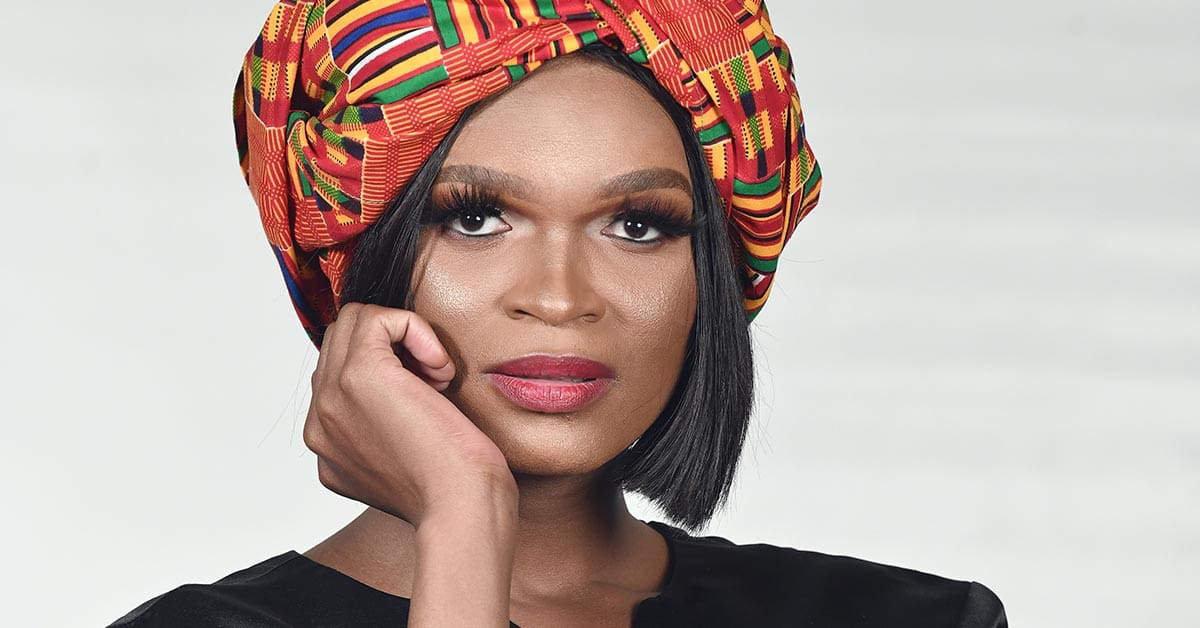Yaya Mavundla celebrates her new ID number

Transgender reality TV personality Yaya Mavundla is celebrating being legally recognised as the woman she’s always been but admits that her being a celebrity likely made things easier.
Last week, an ecstatic Mavundla revealed that she’d been issued her new identity number by the Department of Home Affairs officially identifying her as female.
“When I received the information I was in disbelief as I had waited for so long. I still have those moments where I go back and read my new ID number again. I even went onto Google to double-check what gender the seventh digit number identifies,” she told MambaOnline.
Identity numbers of South African citizens include a code for their gender in the seventh digit: 0-4 means a person is legally recognised as female while 5-9 means they are legally recognised as male.
Once she receives her physical ID card, Mavundla plans to celebrate, probably at home with her family. “My new ID is not only Yaya Mavundla but I decided to add my mother’s name (Nonhlanhla) and my grandmother (Sphiwe) who raised me,” she revealed.
She said that having an identity number and document that reflects a transgender person’s gender identity is vital “because it means transgender people can work where they want to work as themselves and not have challenges like we currently see happening.”
Mavundla added: “Also, there is so much relief one gets knowing you are legally identified as the person you are, not the person you are told you are.”
The 32-year-old publicist, events manager and stylist has been making waves as one of the participants in Becoming, the ground-breaking Mzansi Magic reality show that follows the lives and transition journeys of four transgender South Africans.
Mavundla applied to have her ID amended from male to female in November last year, a process that had its hiccups, especially because she didn’t have a copy of her mother’s ID. She even had to threaten to take Home Affairs to court to speed up the approval of her application.
The department has often been accused of unnecessarily delaying or complicating the process of transgender South Africans amending their IDs, with red tape, bureaucratic delays and blatant transphobia.
The Alteration of Sex Description and Sex Status Act also requires applicants who wish to change their gender to provide two medical reports confirming that they “have undergone a sex change operation or medical treatment resulting in their gender reassignment.”
Mavundla believes that “without a question” being in the public eye helped speed up her application’s success.
“Because it meant when I said something they would listen. If an unknown person from Nquthu [in KZN] threatened to take them to court to resolve their issue, it wouldn’t have been resolved as quickly. Also, having media support assisted a lot.”
Her advice to others who wish to amend their gender? “They must follow the process, go apply with correct documents and follow up on their applications to put pressure on the department. Also, they must know their voice matters. However, for their voices to be more effective, they need to also hold the organisations that get funding to assist them accountable and put pressure on them to reach out to the government to do the work.”
In December last year, Home Affairs published a draft Official Identity Management Policy that suggests allowing a third sex option in identity documents in future so as to “be as inclusive as possible, especially when it comes to intersex and transgender persons.”
Leave a Reply